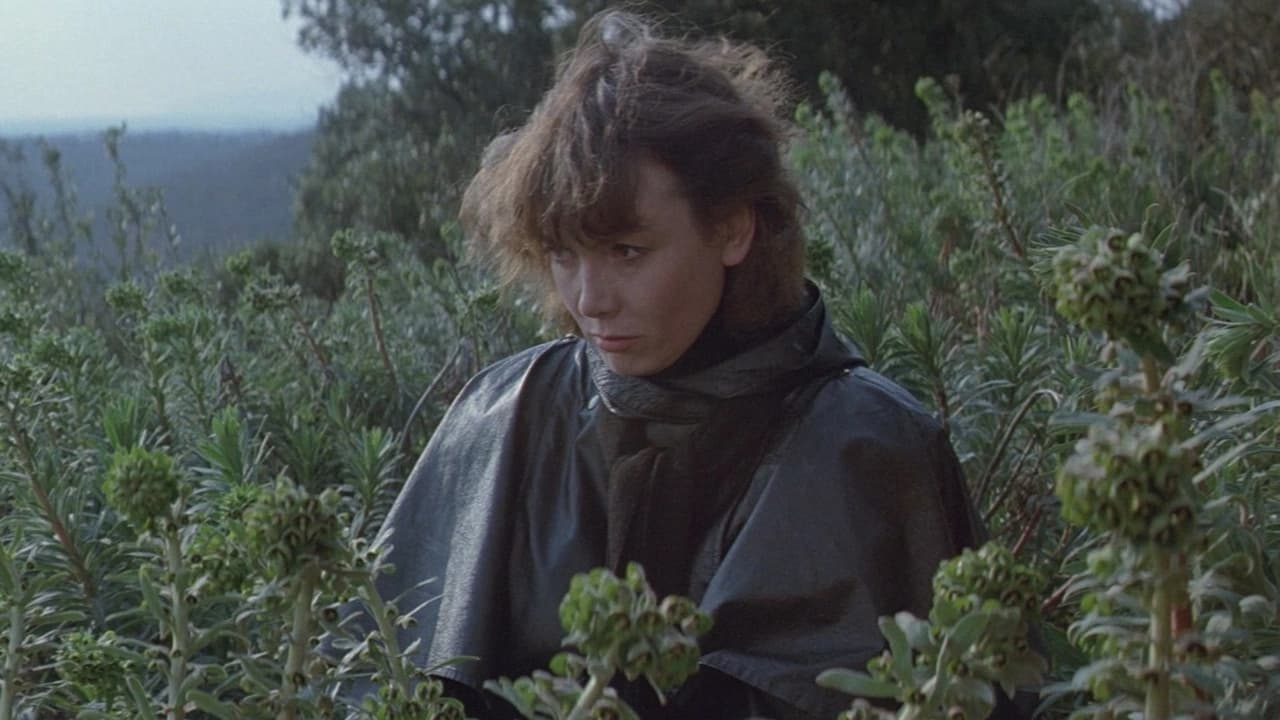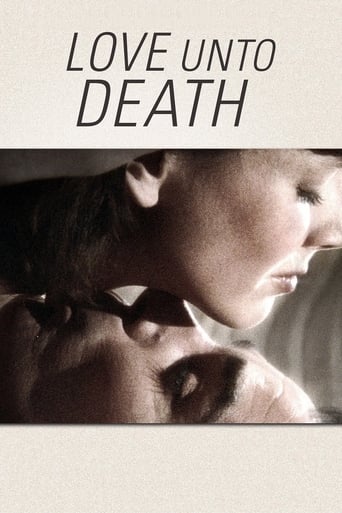PlatinumRead
Just so...so bad
Phonearl
Good start, but then it gets ruined
CommentsXp
Best movie ever!
Sarita Rafferty
There are moments that feel comical, some horrific, and some downright inspiring but the tonal shifts hardly matter as the end results come to a film that's perfect for this time.
zetes
A Bergmanesque drama about mortality and religion. In the opening scene, Pierre Arditi dies in front of his girlfriend, Sabine Azema, but then miraculously comes back to life as if nothing happened. It changes his outlook on existence, and the two go through something of a spiritual journey. Their best friends (Fanny Ardent and Andre Dussollier), both pastors at their church, try to guide them via their religion, but they don't quite buy into the Christian views. This film certainly has its interesting points, and the acting is very good. The religious and philosophical discussions are a bit flat and certainly not up to Bergman's level. Whatever I could have enjoyed in this film, though, is absolutely ruined by a horribly annoying editing gimmick: the film is comprised of very short vignettes, which is fine, but when one of these scenes ends, the film cuts to a black background with snow (or perhaps dandruff) floating around in front of it. A pretty image, once, but these shots last anywhere from ten to thirty seconds, and this must happen a hundred times. I would say these snowy shots take up a good 30 minutes of this 90 minute film. To boot, they are accompanied by a loud, obnoxious, dissonant musical score. Resnais might as well have just shouted "BRECHT!" between each scene. At least it would have been faster!
Ilpo Hirvonen
After going through a huge financial failure in 1967 with Je ta'ime, je t'aime Resnais rose back in 1977 with Providence. In 1980 he came up with My American Uncle which was quite a financial success and, got even an Oscar nomination for Best Writing. Alain Resnais has always been able of creating something completely original and breaking all expectations, shaking the way we look at film and creating new rules. He has always been interested in past and memory, he sees memory as an instrument of imagination through which one tries to reconstruct one's past. He has been portraying these time travelers who are in between of past and presence (Je t'aime, je t'aime), who keep asking themselves what happened in Hiroshima and Marienbad, Algeria and Spain. L'amour à mort wasn't the first time Resnais dealt with memory and oblivion, but unlike in his other films, he portrayed our attempt to try avoid remembrance and the necessity of it.L'amour à mort is the director's tenth feature and to my mind represents a certain climax in his career. The film requires its viewer to throw oneself into the wonderfully confusing world of the director and accept his unique rules of the game. It's an ambitious, unusual and rich film, full of clever insightful details that please the viewer at so many levels.Resnais has always made the unexpected. After seeing Providence (1977) and My American Uncle (1980) I was expecting a somewhat similar film. But what I got was something completely different, in a good way, since I ended up liking L'amour à mort more than the two mentioned before. Unusually for Resnais the film has got a linear storyline: Elisabeth and Simon are a couple, deeply in love. All they need is each other, and their only friends are the priest Jérôme and his wife Judith. One day, in the first scene, Simon dies but resurrects during the same scene. First he doesn't remember anything about his afterlife experience but eventually things start to come up to his mind; a river he had to cross, sounds and a melody he tries to catch.The film focuses on discussions about life and death between Simon, Elizabeth, Jérôme and Judith. Simon and Elizabeth don't really believe in God, but don't care enough to recognize atheism. Judith is somewhere in between and Jérôme is, as a priest, a fundamental Christian, who is unable of commenting anything without a bible verse. Alain Resnais is religiously an agnostic. He doesn't claim that he understands the universe but isn't interested in religious riddles. Resnais has said that L'amour à mort isn't a philosophical film, which might be quite hard to believe at times. Since the film has got a strong existentialist touch but perhaps Resnais wanted to highlight that this is more of a film about love. Love and death, and how they interbreed.In the end, Simon decides to commit a suicide because he is unable to live after experiencing something in hereafter, he has to get back there. It is absolutely necessary for him to remember it. When Simon has killed himself Elizabeth finds herself in a dead end - she's a prisoner of love. This brings an intriguing perspective on the film; is Alain Resnais depicting the paradox of love and freedom? The characters certainly talk about freedom, and this brings us back to the existentialism in the film. Certainly the conception of freedom in L'amour à mort is indeterministic; we are not guided by fate, but our choices are necessary, so we aren't free. Elizabeth is still controlled by her emotions, her love for Simon from whom she can't let go. Love is Elizabeth's religion and death guides it.
jotix100
In a solitary house in the country, a botanic researcher, Elisabeth, coming home happens to see her lover sprawled on the floor, by the bed. She cannot do anything to wake him up and calls a doctor, who proceeds to tell Elisabeth the man is dead. Imagine our surprise when moments later, Simon, refreshed and somewhat recuperated appears to her. Fortunately for the couple, the doctor made a mistake in his assessment.Alain Resnais' film is from the period where he was involved in more esoteric matters. Working with his frequent collaborator, Jean Gruault, he made a film that deals with the obsessions of Simon with death, and how he deals with it. Elisabeth, who loves Simon, wants him so, that even she decides to do whatever it takes to follow Simon to the beyond. The film is told in brief scenes interspersed by blackness, what one can interpret as a trip to the beyond among galaxies, or a trip during a dark night in the midst of a snow storm.Mr. Resnais was preoccupied by questions about theology that have no easy answers, as Simon is told by a couple of Protestant ministers, Judith and Jerome. In fact, Jerome offers a sarcastic advice to Elisabeth at a low point in her desperation over having lost Simon. "What if there is nothing?", he asks her. Elisabeth finds out about Judith own involvement with Simon, something she did not even suspect.The director brings back the four principals, Sabine Azema, Pierre Arditi, Fanny Ardant, and Andre Dussolier together again. Having worked with them in the making of "La vie est un roman", must have impressed him to include them in his new film. The actors show great chemistry following Mr. Resnais orders in this enigmatic film. The film wants to make the viewer ponder on that ultimate moment of our lives.
Dubman
Perfect cast for a few-person drama. Simon is dead but somehow resurrects from outside. What he had seen there is displayed in form of blank spots orchestrated to a magnificent score by German avant-garde composer Werner Henze. Simon is haunted by his death, comforted by support of death people he'd seen on the other side. His girlfriend tries to hold him to life but failing to, decides to follow him after his finally occurring death. Very touchy and moving, deeply psychological, but a bit slow and somewhere even boring.

